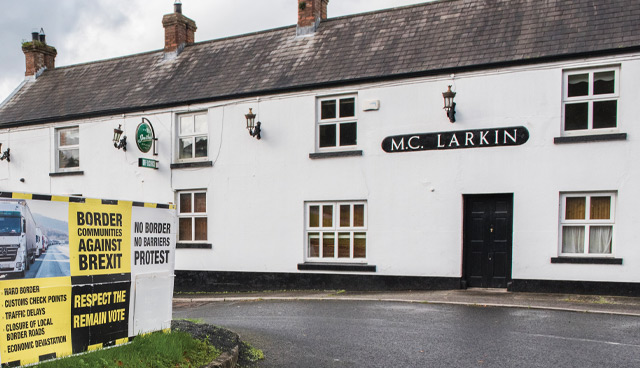The Irish Protocol

As negotiations on a future trading arrangement continue and to draw closer to the end of year deadline that has been set by the UK, the Irish Protocol is proving to be one of the biggest sticking points, with the EU and the UK seemingly miles apart on their understandings of the measures.
The Protocol, as agreed in last year’s Withdrawal Agreement, ensures that there will be no hard border in Ireland. Under this arrangement, Northern Ireland remains in the UK’s customs territory, but applies EU customs law and effectively remains part of the EU’s single market for goods. The Irish Sea then becomes the de facto external border of the single market.
Goods moving from Britain to Northern Ireland will be subject to tariffs, regulatory checks and controls. Goods deemed to have no risk of travelling south into the Republic of Ireland will be eligible for tariff exemptions or rebates. It is specifically outlined in the Protocol that there is no measure within stopping unfettered movement of goods from Northern Ireland to Britain, however.
These are the basic principles agreed to within the Withdrawal Agreement last year, but it is one of the areas that has proved hardest to reach full agreement whereby legal rules that are clear for businesses, politicians and consumers can be drawn up. These new arrangements will be overseen by a Joint Committee of EU Commissioners and UK Cabinet ministers. A specialised committee of senior officials will also exist, but it is the joint committee that will make decisions in this area.
An internal EU paper, circulated in early 2020, explains that the joint committee will have two roles: ensuring there is a system in place for checking and monitoring goods, and deciding what goods are deemed unlikely to be travelling south. The sticking point in negotiations seems to be the UK’s hope that the joint committee can be used to evade checks, but the EU insists that its responsibilities lie in these two roles alone.
Upon being appointed Secretary of State for Northern Ireland, one of Brandon Lewis’s first proclamations was: “We are absolutely clear. As a UK Government, we will not be having a border down the Irish Sea.” However, the EU have argued that this ship has sailed with the Withdrawal Agreement now in force as an international treaty since February. In an annexe to the New Decade, New Approach document, the British Government promises to negotiate “additional flexibility and sensible practical measures across all aspects of the Protocol that are supported by business groups in Northern Ireland”, but the EU view these practical measures as being signed and sealed within the Withdrawal Agreement.
A recent meeting between a European Commission team and northern business figures at the Belfast campus of the University of Ulster delivered this view, leaving the business community with the reality that there may be wiggle room within the rules, but no prospect of changing the rules. A UK Customs impact assessment of the scenario found that paperwork in such a situation “ranges from £15 to £56 per declaration, depending on factors such as whether a business outsources the process to a customs agent… Small and micro businesses may be more likely to use a customs agent and as such are more likely to face higher costs”.
Despite the posturing of Lewis, and Boris Johnson and Dominic Raab alike, this is now the reality beginning to sink in for northern business.





